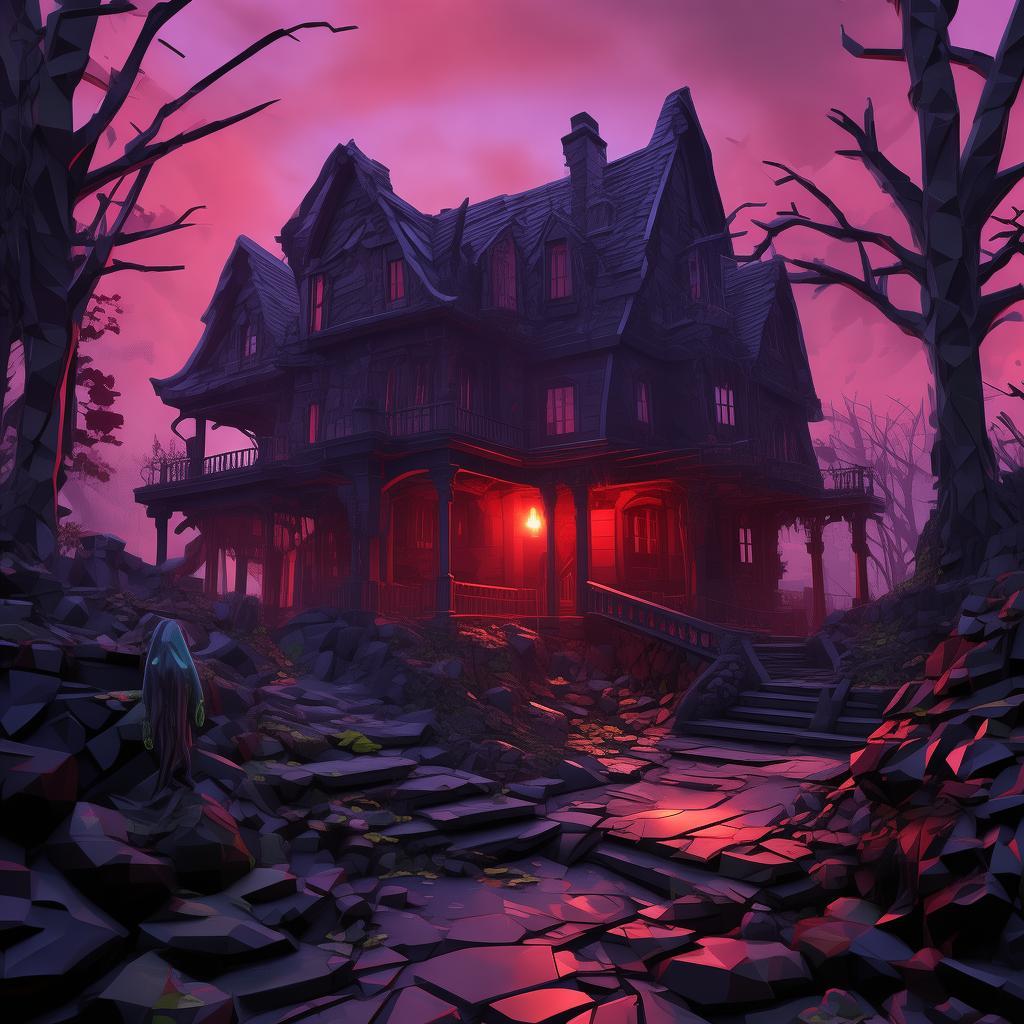The Dad's Sinister Symphony: A Gothic Horror Opera
In the heart of a decrepit mansion shrouded in mist and shadow, young opera singer Eliza had always felt a strange pull towards the old, dusty piano in the corner of her room. It was a relic from her late mother's collection, a piece of her that had remained untouched after her tragic death. Eliza's father, a reclusive composer, had never spoken of her mother or the piano, leaving it to gather dust in the attic. But something about it called to her, a siren's song that she could not resist.
The mansion, once a beacon of elegance and culture, now stood as a testament to the decay of time and the secrets it held. Eliza's father, known to the townsfolk as a brilliant but eccentric composer, had withdrawn from society, dedicating his life to his art. His latest creation, a gothic horror opera titled "The Dad's Sinister Symphony," was set to debut at the local theater, and Eliza, with her stunning voice, was to be the lead soprano.
As the night of the opera approached, Eliza found herself drawn to the piano, her fingers tracing the keys in a silent melody. She heard a faint whisper, as if the piano itself were speaking to her. "Remember, Eliza," it seemed to say, "the music is not just notes on a page; it is the story of your family."

Determined to uncover the truth behind her mother's mysterious death and her father's reclusive nature, Eliza began to delve into the family's past. She discovered old letters, photographs, and a journal belonging to her mother, filled with cryptic messages and references to a dark family secret. The journal spoke of a forbidden love, a forbidden child, and a curse that had been laid upon the family generations ago.
The night before the opera, Eliza's father revealed the truth. He had been a young musician, passionate and in love with a woman who was not of his social standing. They had a child, a daughter, but the child was born with a deformity, a reminder of the stain on their union. In a fit of despair, her mother had taken her own life, leaving Eliza's father to raise their daughter in secrecy and shame.
The opera, "The Dad's Sinister Symphony," was a reflection of his own guilt and sorrow, a narrative of a family torn apart by love and tragedy. The music was haunting, the lyrics filled with despair and the supernatural. Eliza, now the vessel for her mother's voice, felt the weight of her family's past as she sang the final aria.
As the opera reached its climax, the theater was filled with an eerie silence, broken only by the haunting melody. Eliza, on stage, felt a presence behind her. She turned to see her father, his eyes hollow and filled with sorrow. "Eliza," he whispered, "you are the key to breaking the curse."
The final scene of the opera unfolded, revealing the truth behind the family's curse. Eliza, now understanding the gravity of her role, stepped forward, her voice soaring through the theater. She sang of forgiveness, of love that transcends all, and of the power of redemption.
As the final note echoed through the air, the theater was bathed in light, and the darkness that had clung to the mansion began to dissipate. Eliza's father collapsed to his knees, his burden lifted at last. The curse was broken, and the family's secrets laid to rest.
In the aftermath, Eliza found herself at the piano, her fingers once again tracing the keys. She smiled, knowing that her mother's legacy would live on through her music. The mansion, once a place of darkness and despair, now stood as a testament to the power of love and the resilience of the human spirit.
The Dad's Sinister Symphony had not only brought Eliza face-to-face with her family's past but had also given her the strength to face her own future. She had become more than just an opera singer; she had become the keeper of her family's story, a legacy that would echo through time.
✨ Original Statement ✨
All articles published on this website (including but not limited to text, images, videos, and other content) are original or authorized for reposting and are protected by relevant laws. Without the explicit written permission of this website, no individual or organization may copy, modify, repost, or use the content for commercial purposes.
If you need to quote or cooperate, please contact this site for authorization. We reserve the right to pursue legal responsibility for any unauthorized use.
Hereby declared.









